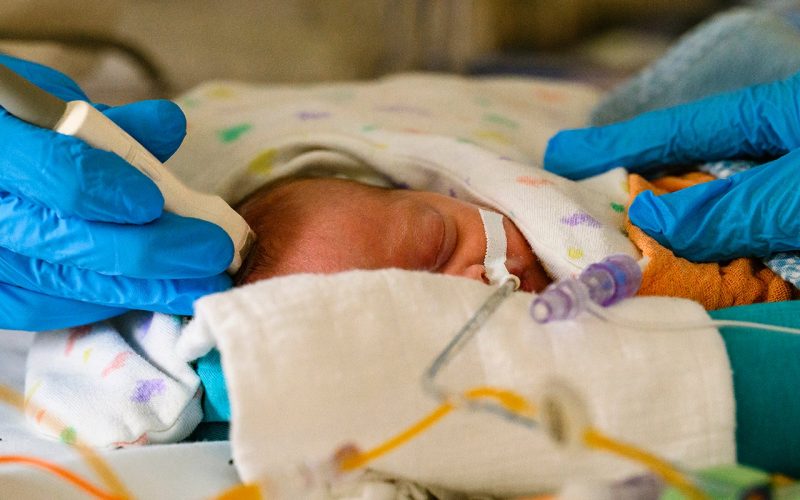Brain researchers at the Wilhelmina Children’s Hospital at UMC Utrecht have found a link between more active sleep in premature babies, and better development of the white matter in their brains. This is important because brain development in these vulnerable little patients often lags behind, which can lead to various problems. The results of the study were published in The Journal of Neuroscience.
Many premature babies are particularly vulnerable. They are at risk for a variety of developmental problems, including concentration problems, behavioral problems, and difficulties with motor skills. As a result, the children often struggle to keep up in school. In the hospital, these babies’ sleep is often disturbed by a variety of medical procedures that perhaps could have been postponed. In the womb, these babies would sleep up to 22 hours.
Based on previous research with mice, researchers expect that “good” sleep has a positive influence on the brain development of premature infants. Especially “active sleep,” in which babies move, laugh or even make sounds, seems to be essential for brain development. However, no evidence for this had ever been found in humans. Researchers at the UMC Utrecht wanted to change that, and have now properly investigated the role of sleep on the brain development of premature babies for the first time.
The study, led by researchers Xiaowan Wang and Eline de Groot, used machine learning to analyze sleep patterns in premature babies. The team developed an algorithm that recognizes which stage of sleep a baby is in. This algorithm uses heart rate and respiratory rate data that are routinely monitored in neonatal intensive care units (NICUs). “In fact, we turned our existing monitoring system into a kind of smartwatch that can monitor body functions,” explained sleep researcher and neonatologist Jeroen Dudink of UMC Utrecht.
The study involved two groups of premature babies who had previously been treated in the NICU. The researchers used data from the first group to train their algorithm. Data from the second group, consisting of 58 babies, was analyzed for the relationship between sleep and brain development. The researchers found that there indeed appears to be a relationship between a higher percentage of active sleep in premature babies and more white matter in the brain. The measurement point was the children’s due date. At the NICU of the WKZ, a standard MRI scan of the brain is often performed on the much prematurely born children.
The researchers are pleased with this first concrete indication that sleep plays an important role in early human brain development. “The white matter is crucial in processing information and connecting different brain regions with each other, which in turn is essential for cognitive and motor functions,” said researcher Eline de Groot. “We therefore expect that quality sleep can have many long-term benefits for these vulnerable babies.”
The research team plans to better monitor the sleep of premature babies in the NICU in the future, using the advanced sleep monitoring they have developed. “We can hopefully in the future ensure that deferrable medical interventions are only done at a time when a baby is not in his or her active sleep,” explains Jeroen. In this way, the team aims to investigate whether quality sleep indeed ensures better brain development in this vulnerable patient group. All with the ultimate goal of giving premature babies the best possible start in life.
The research article on which this news item is based is titled “Machine learning-derived active sleep as an early predictor of white matter development in preterm infants. It can be found here.
Artificial intelligence (AI) is part of UMC Utrecht’s strategy. With it, we work on tomorrow’s care, which is innovative, sustainable, affordable and ‘humanizable’. All Health AI initiatives of UMC Utrecht and Utrecht University have been bundled, in order to promote wider and faster application of AI in healthcare, education and research. There are currently five Health AI Labs within UMC Utrecht.
